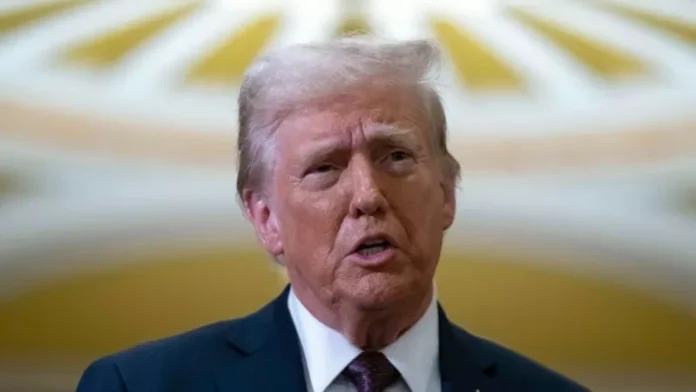Taipei, Taiwan – In a significant move, U.S. President-elect Donald Trump held a phone call with Chinese President Xi Jinping on Friday, just hours after China announced its plan to send Vice President Han Zheng to attend Trump’s inauguration ceremony on Monday.
The conversation, which took place on Truth Social, Trump’s social media platform, was described as “a very good one” by the President-elect. They discussed important issues such as trade, fentanyl, TikTok, and other subjects. Trump expressed his belief that the two nations can work together to solve many problems and make the world a more peaceful and safe place.
Chinese state media reported that President Xi congratulated Trump on his election victory and emphasized the importance of the development of U.S.-China relations over the next four years. Both leaders have high aspirations for the future of their countries’ relationship.
“We both attach great importance to our interactions with each other, we both hope that U.S.-China relations will get off to a good start in the American President’s new term, and we both are willing to push China-U.S. relations forward to make greater progress from a new starting point,” Xi said in a statement released by Chinese state broadcaster CCTV.
While acknowledging that there may be differences between the two countries, Xi stressed the importance of respecting each other’s core interests and finding proper solutions to any problems that may arise. He also urged Trump to handle the Taiwan issue carefully, as Beijing considers the democratic island to be a part of its territory.
The two leaders also exchanged views on various international and regional issues, including the Ukraine War and the conflict between Israel and Palestinians.
Earlier on Friday, the Chinese Foreign Ministry announced that Vice President Han Zheng will represent President Xi at the inauguration ceremony. This decision comes after Trump extended an invitation to Xi and other foreign leaders, breaking from tradition where only foreign ambassadors attend presidential inaugurations.
Analysts believe that Beijing’s decision to send Han Zheng shows goodwill towards the new Trump administration.
“China has no established tradition of letting the president attend other heads of state’s inauguration ceremonies,” said Zhou Bo, a senior fellow at the Center for International Security and Strategy at Tsinghua University in Beijing. “Sending the vice president to attend Trump’s inauguration ceremony is the best option, and it shows Beijing’s goodwill to President-elect Trump.”
However, experts say Han’s attendance will mainly be ceremonial and not lead to any concrete outcomes.
“I don’t expect anything concrete out of Han’s trip to Washington,” said Zhiqun Zhu, an expert on Chinese foreign policy at Bucknell University in Pennsylvania. Despite the symbolic nature of Han’s attendance, Zhu believes it could lay a good foundation for future U.S.-China relations.
“Hopefully, a friendly atmosphere will be built and can be sustained in the weeks and months ahead, so when the two sides sit down to discuss substantive issues, maybe a deal could be struck,” he added.
Trump’s return to the White House has created uncertainties for China, which has been facing an economic downturn in recent years. During his presidential campaign, Trump had promised to impose high tariffs on Chinese products, causing concern in Beijing. However, Zhou believes that China will wait and see how Trump’s policies towards China unfold before taking any action.
“We don’t know how Trump will play his cards, so I believe China will wait to see how his policies toward China play out,” he said.
Despite his tough stance on China during the campaign, Trump has expressed his desire for a good relationship with the country and has been in contact with Chinese leaders through representatives.
“And I think we will probably get along very well, I predict,” he said during an interview with conservative talk show host Hugh Hewitt on January 6th, adding that the relationship must be a two-way street.
Trump has also nominated several politicians known for their hawkish stances on China, such as Senator Marco Rubio as Secretary of State and Representative Mike Waltz as White House National Security Adviser. During his Senate confirmation hearing, Rubio described China as “the most potent and dangerous near-peer adversary this nation has ever confronted.”
However, Zhu believes that it is too early to tell if this tough talk will translate into actual policies towards China in the new administration.
“Some of the appointees by Trump seem hawkish on China, but since they work for Trump, I don’t think they will override his policies,” he said.
Zhu adds that both Washington and Beijing will proceed with caution as they navigate the

